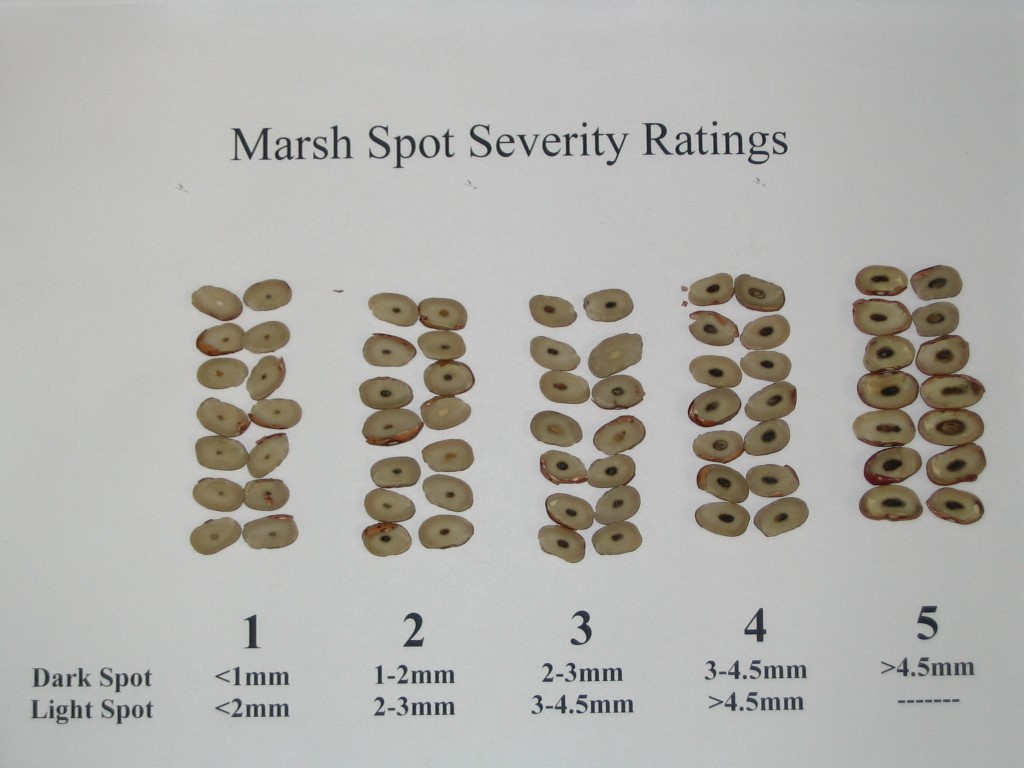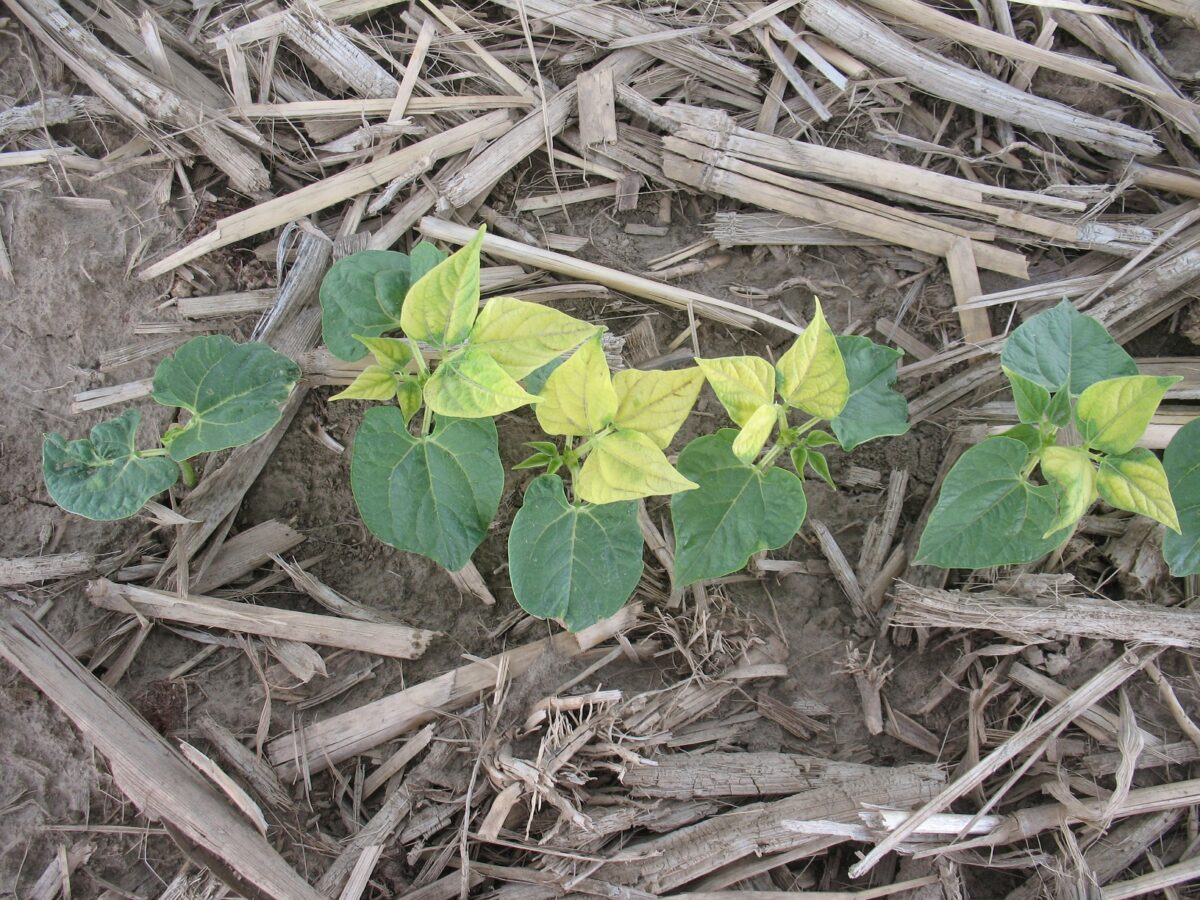This article was written by Mylene Corzo Lopez, University of Guelph Summary Marsh spot is due to imbalanced nutrient supply to crops, mainly associated with manganese (Mn) deficiencies in the pea and bean plants and is not caused by pathogens such as virus or bacteria. It is most often found in cranberry bean seed. Marsh…Continue readingMarsh Spot
Chris Gillard and his research staff conduct many different dry bean research trials at the University of Guelph – Huron Research Station each year. The trials vary from year to year and cover a range of research topics. The results are summarized annually and can be viewed at the links below. Note that research must…Continue readingHuron Research Station Annual Reports
Dry common bean does not have adequate tolerance to PP applications of Eragon, Sencor, Eragon plus Sencor, Broadstrike, FirstRate or Classic. Do not use these herbicides for control of GR Canada fleabane in dry bean.
2,4-D ester shows promise as a PP herbicide option for control of GR Canada fleabane in dry common bean but is not registered for use in dry beans.
Continue readingDry common bean tolerance to pre-plant herbicides for the control of glyphosate-resistant Canada fleabane
Azuki bean has fair to good tolerance to all treatments evaluated. Tankmixes with 2,4-D increased injury with the three-way tankmix resulting in the greatest injury. None of these products are registered for use in azuki bean.Continue readingAzuki Bean Tolerance to Pre-Plant Herbicides in Strip Till
Permit can safely be applied POST in dry common bean from the V1 to R1 crop growth stage at rates of 14 to 28 g/ac. Permit should not be applied POST in azuki bean, azuki are very susceptible to injury by Permit. Continue readingTolerance of dry beans to Permit applied at five post-emergence timings
PPI applications of Permit provide the greatest control of lambsquarters, pigweeds, and green smartweed followed by PRE and then POST. Permit should not be considered for control of lambsquarters using a POST application. Permit applied PPI provides greater control of velvetleaf than PRE applications.Continue readingWeed control with different application timings of Permit
Permit can safely be applied PPI, PRE or POST in dry common bean. Recent research suggests that soil applied applications of Permit can safely be used in azuki bean. Permit should not be applied POST in azuki bean. Continue readingTolerance of dry beans to soil and post-emergence applications of Permit
Weed control in dry beans can be a daunting task. Management decisions should be based on knowledge of weed pressure and weed species on a field specific basis. There is no one size fits all scenario with weed control in dry beans. The size of farm operations means there is a diverse mix of past…Continue readingPermit and grass herbicide tankmix partner comparison in white bean
By: Meghan Moran, Mike Cowbrough (OMAFRA) and Dr. Darren Robinson (University of Guelph-Ridgetown Campus) Group 27 herbicides, commonly referred to as “bleaching” herbicides inhibit an enzyme called HPPD (p-hydroxyphenyl pyruvate dioxygenase). Several herbicides containing Group 27 active ingredients are used pre-emergence or early post-emergence in corn. Dry beans are often grown after corn in rotation…Continue reading“Bleaching” Herbicide Carryover Injury in Dry Beans
AgTiv is a biological product (Premier Tech Agriculture, Quebec, Canada) that contains mycorrhizae (Glomus intraradices) spores. The product Myconate (Plant Health Care, Raleigh NC) contains the isoflavone formononetin. Both products have a powder formulation applied as a seed treatment, and a liquid formulation applied with a liquid fertilizer at planting. Product claims include increased plant…Continue readingMycorrhizae Products for Beans 2016-2017

